'At 103, my grandad is still proud on VJ Day'
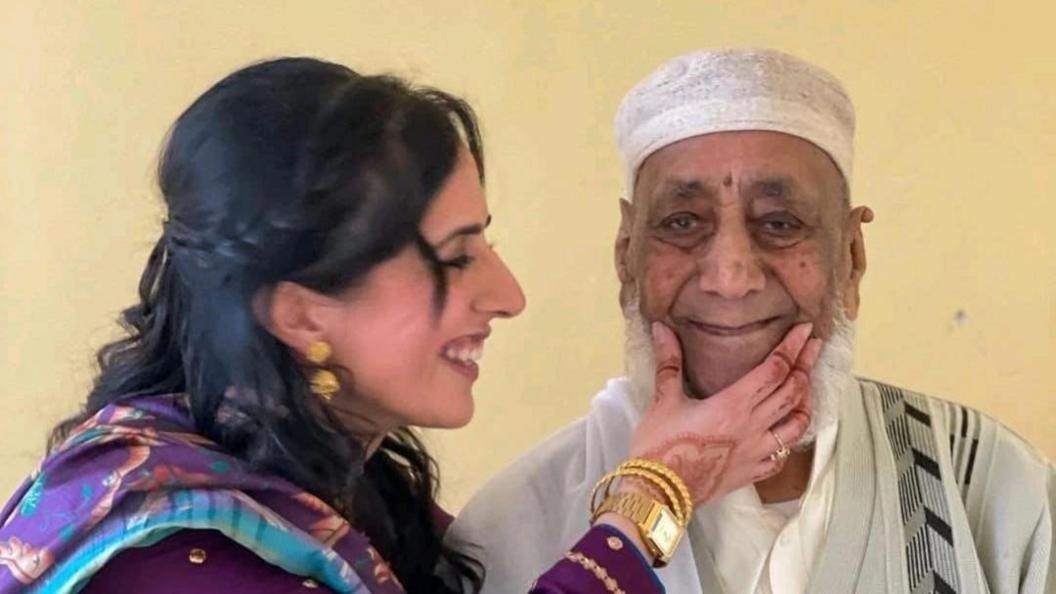
Sabbiyah Pervez's grandfather Mirza Khan served with the British Indian Army in World War Two
- Published
Victory over Japan Day - or VJ day - on 15 August marks the day in 1945 when World War Two ended. Ahead of VJ Day, I have been speaking to my grandfather, one of the oldest surviving veterans of that conflict.
"The Japanese bombed us. They wanted us to die. The bombs fell all around, but I survived," my grandfather tells me.
Mirza Khan, or Baba Ji as I call him, has recently turned 103.
He has lived through five monarchs, more than 20 prime ministers and countless wars.
But it is the war he remembers as a teenager which has stayed with him.
He slipped into Punjabi as he told me how he was just 17 when he signed up.
The reason was simple, there was no food, no jobs, and the British Army paid a wage.
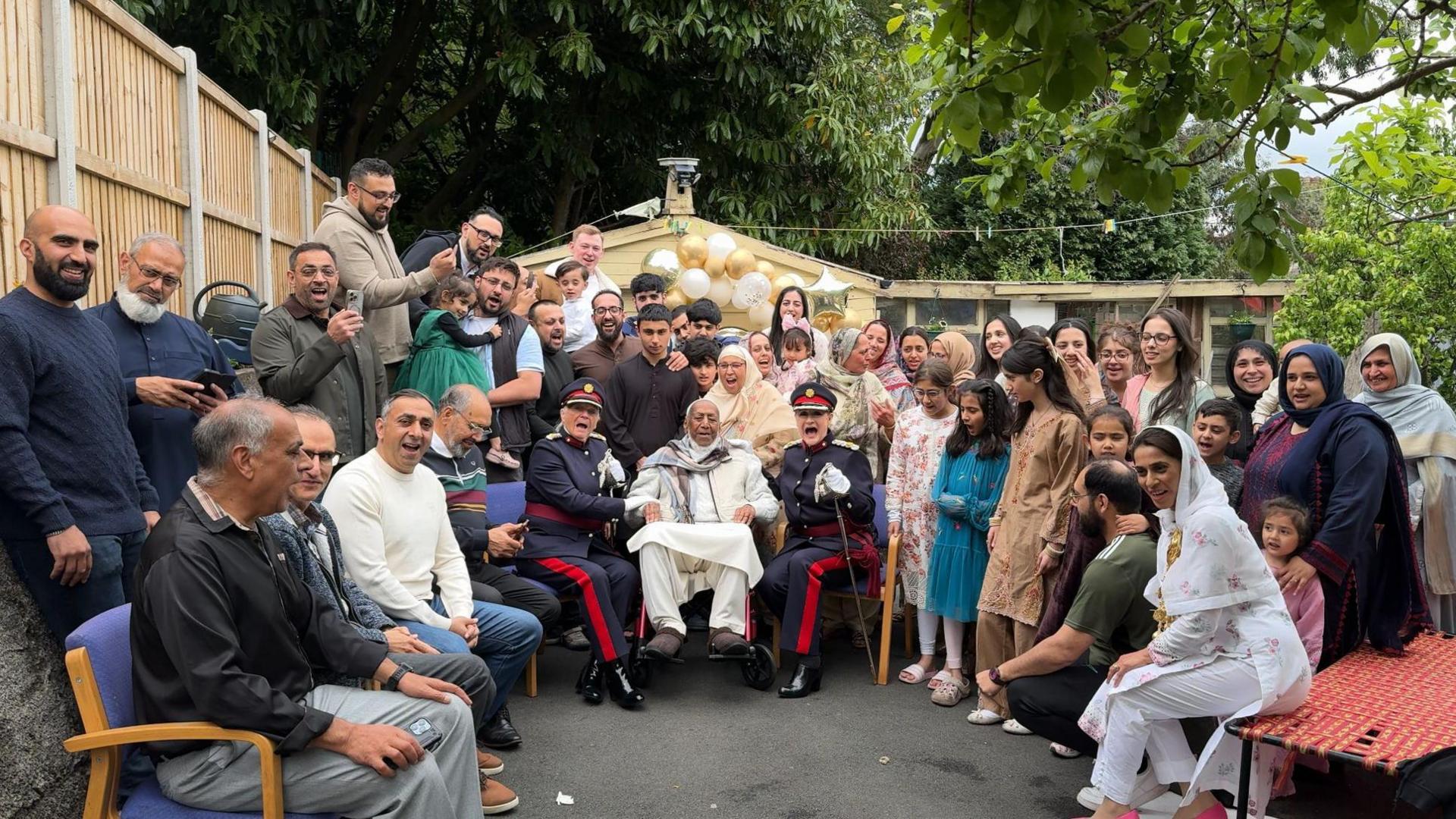
Mirza Khan has six children, 21 grandchildren and 24 great grandchildren
"As a young man, along with other men from my village I served this country in the war and was proud of my service in the British Indian Army," Baba Ji said.
His service took him to Myanmar, then known as Burma, where he joined tens of thousands of other troops from the British Indian Army.
Around 2.3 million soldiers served in the Indian Army during WW2, and 89,000 of them died in military service.
It was gruelling work, fighting in the harsh jungle terrain, often in extreme conditions, and relied on soldiers and support staff like cooks, drivers and road builders to keep supply lines moving.
"We wanted to get our freedom from British rule and the only way was to help in winning the war," my grandfather explained.
Thousands of Asian labourers died building roads and carrying heavy loads through mountains and jungle, including the Ledo Road between China and India, working with basic tools and often suffering from tropical diseases like malaria.
Baba Ji's job was to look after the mules that carried supplies and ammunition.
"We'd eat bread, and we'd feed the horses the same meal," he told me.
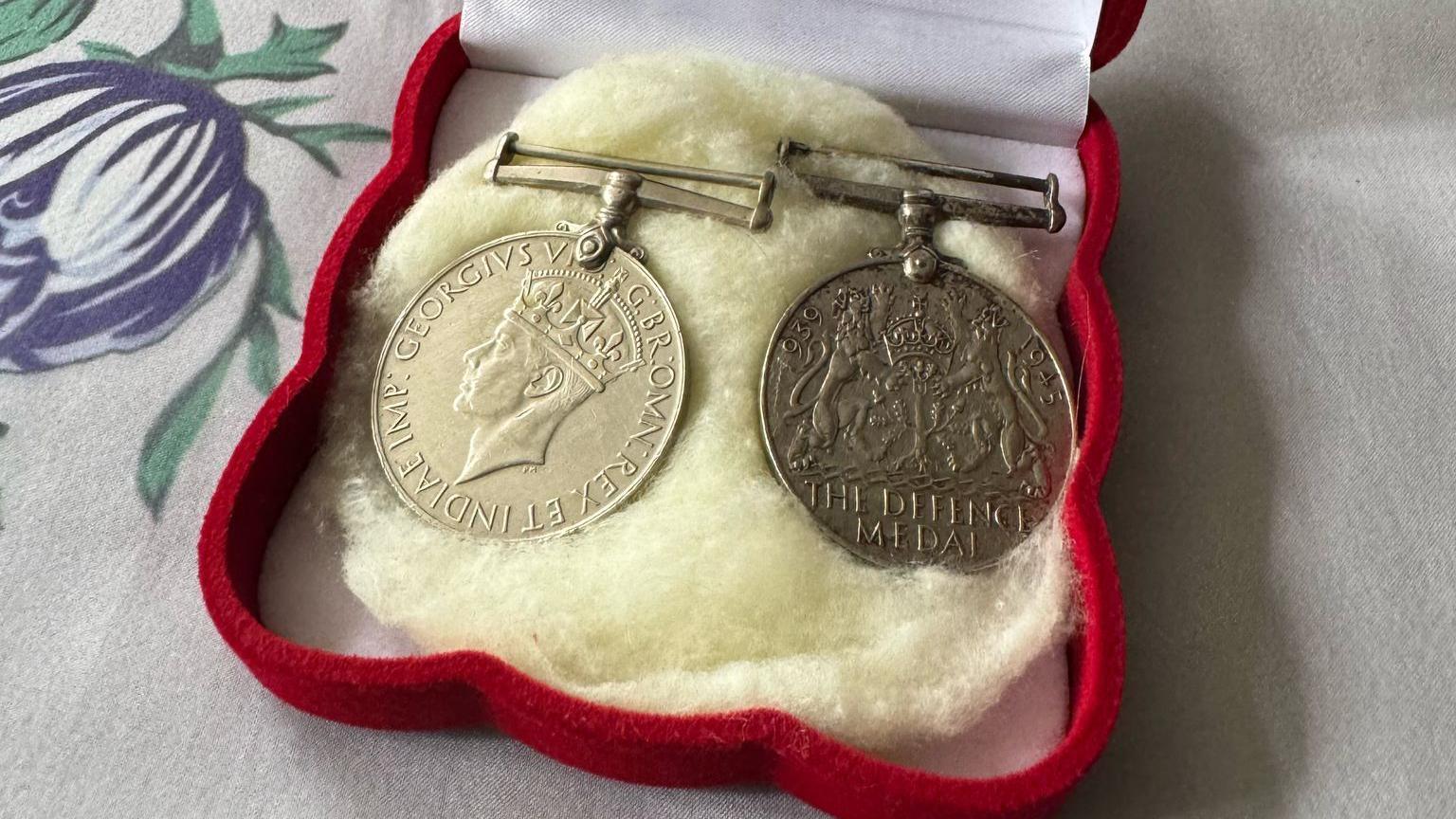
Mirza Khan still has two of the six defence medals of the British Commonwealth, awarded for his service during WW2, the others were lost
When I was a teenager studying history at school, he told me about friends and comrades who were captured by the Japanese.
Some survived, others did not. It is still too painful for him to talk about that part of his life.
Thousands of soldiers died in the Burma campaign, many from Commonwealth countries, and their sacrifice and valour are immortalised in a memorial in the heart of Bradford.
"I have served this country all my life, with all my heart," Baba Ji told me.
"I wanted to join the fight against those who were against this nation.
"As far as I could see it was our motherland, where we laboured and to whom we gave our all.
"We did not differentiate between the English or Muslims in the army."
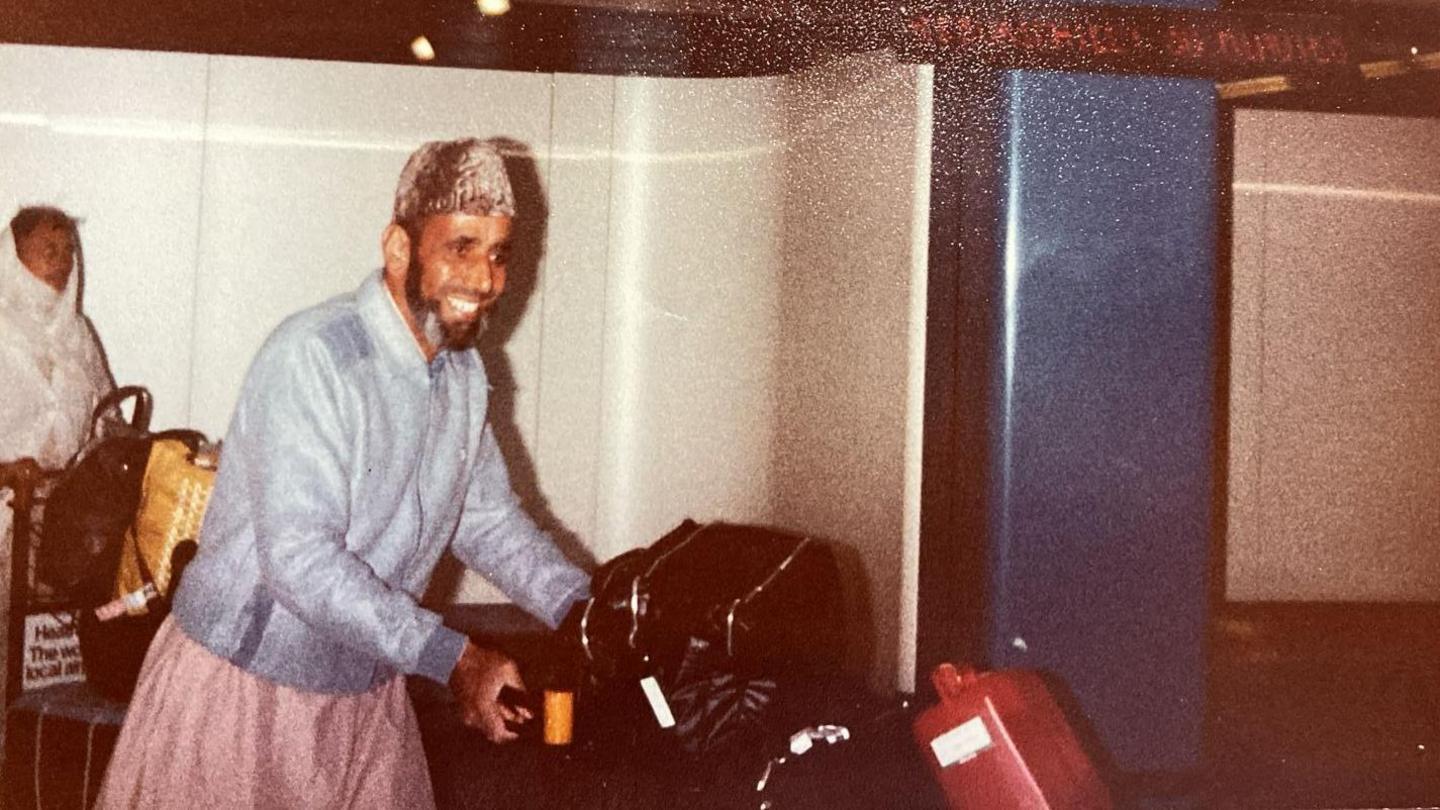
Mirza Khan moved to the UK in the 1960s from Punjab in Pakistan
After the war, the UK faced a labour shortage, and people from India, Pakistan, the Caribbean and other Commonwealth countries came to help rebuild the country.
Baba Ji, like thousands of others, moved to Britain in the 1960s and made Bradford his home.
Their arrival changed many British cities, which became home to new communities and cultures.
"My family has been raised and educated here and my children and grandchildren work hard and serve and honour this country," Baba Ji said.
There's over a hundred years between Baba Ji Mirza and his youngest great grandchild.
They may not yet understand the significance of his story, but one day they will know about the courage and resilience of his generation.
Additional reporting by Anil Kumar Bharath.
Get in touch
Do you have a story to share with the BBC Yorkshire & Lincolnshire investigations team?
Other related stories
- Published15 August 2020
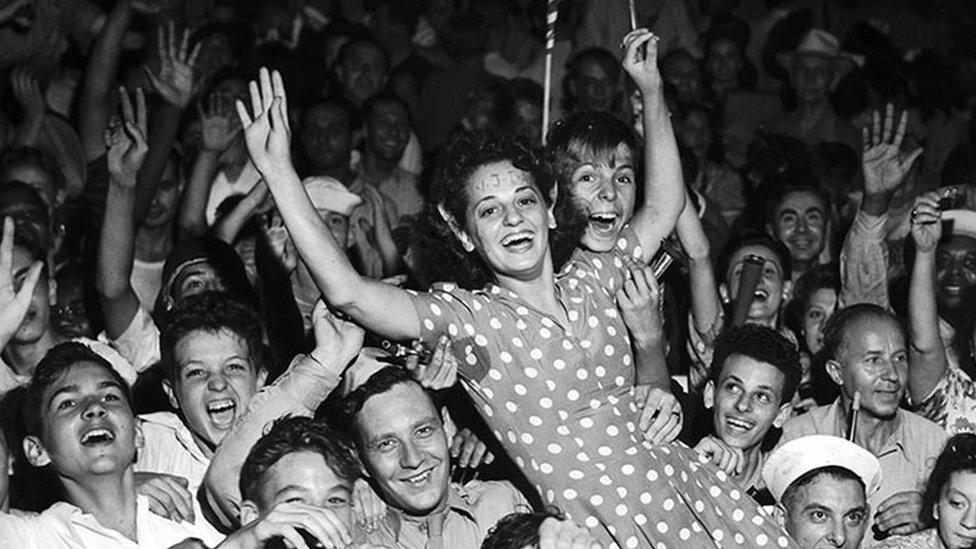
- Published17 June 2015
- Published20 January 2020
